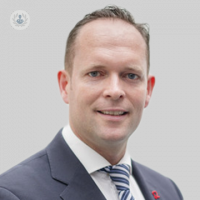Can you really die of a broken heart?
Written by:Putting aside the cartoon image of a heart split into two jagged pieces, broken heart syndrome – or Takotsubo syndrome, in medical terms – is a very real thing. Broken heart syndrome occurs when the muscular sections of the heart temporarily weaken. This weakening is connected to traumatic events, such as emotional stress, the death of someone you love, or a relationship break-up. In some cases it can be brought on by joyous events - imagine a big casino payout, an unexpected marriage proposal, or a happy reunion. Broken heart syndrome usually occurs after intense emotional, or even physical stress.

What is broken heart syndrome?
Broken heart syndrome is known more commonly in the medical world as Takotsubo syndrome, or takotsubo cardiomyopathy. ‘Takotsubo’ comes from Japanese, as the condition was first identified in Japan. The word ‘takotsubo’ refers to a particular type of octopus trap, which looks exactly like the shape of the left ventricle (one of the four chambers of the heart) when this syndrome strikes.
Takotsubo cardiomyopathy occurs when the left ventricle changes shape, and becomes bigger. Symptoms tend to present themselves shortly after emotional stress, and the syndrome affects women more than it does men. Sometimes no trigger can really be identified.
What are the symptoms of broken heart syndrome?
Takotsubo syndrome is often misdiagnosed as a heart attack, mostly because test results and symptoms look and feel very similar. Symptoms include chest pain and shortness of breath, which comes on suddenly. Some patients also report a sensation of nausea, while some do vomit, or experience heart palpitations. However, with broken heart syndrome, there are no blockages in the coronary arteries (which is the usual cause of a heart attack), but when an area of the heart becomes enlarged, blood is not able to circulate properly around the body.
How long does it take to recover from a broken heart?
While Takotsubo syndrome is a serious illness during the immediate phase, with potential medical complications, most people make a complete recovery within a few weeks. However, in a minority of cases, it can recur, and some people are left with permanent heart problems after the initial attack. During the acute episode it can prove fatal, and therefore is taken seriously. Specialist assessment is appropriate to manage and guide treatment, and provide future follow up strategies.
Dr. Alexander Lyon has been studying Takotsubo syndrome for over 10 years and is the first author of the professional position statement for the Heart Failure Association (HFA) of the European Society of Cardiology1 and is the chair of the HFA Takotsubo Syndrome Study Group. He sees many people who have experienced an episode of Takotsubo syndrome, reviewing their current medication and providing a personalised management plan for the future. He has also hosted the first Takotsubo syndrome patient workshop to help support people who have suffered from this syndrome.
- Lyon AR, Bossone E, Schneider B, Sechtem U, Citro R, Underwood SR, Sheppard MN, Figtree GA, Parodi G, Akashi YJ, Ruschitzka F, Filippatos G, Mebazaa A, Omerovic E. Current state of knowledge on Takotsubo syndrome: a Position Statement from the Taskforce on Takotsubo Syndrome of the Heart Failure Association of the European Society of Cardiology. European journal of heart failure. 2016;18(1):8-27.


